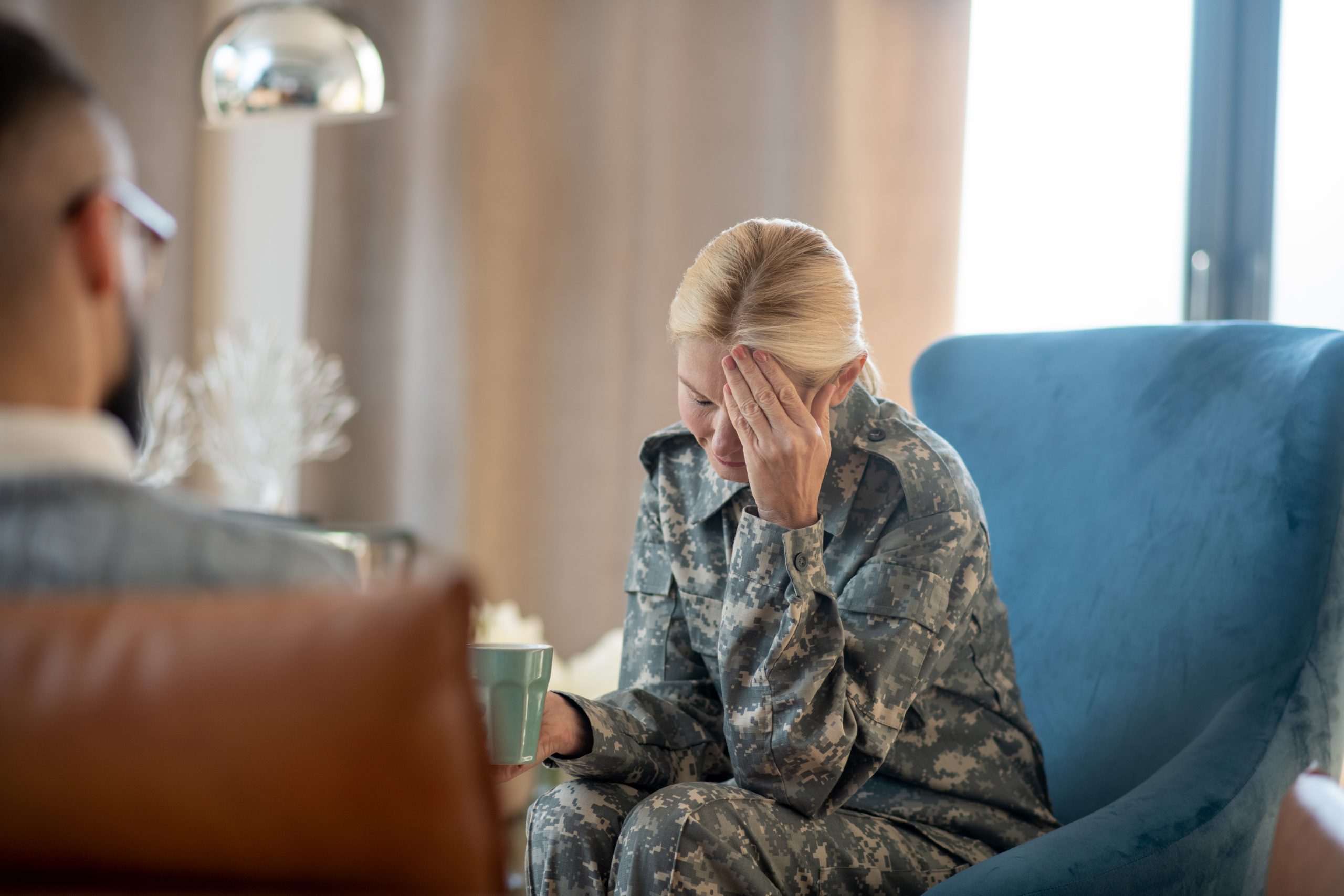Each year, PTSD Awareness Day on June 27 reminds us that trauma is more common than most people realize, and that healing is possible with understanding, compassion, and evidence-based care.
Post-traumatic stress disorder (PTSD) doesn’t just affect combat veterans. It can impact anyone who has experienced or witnessed trauma, including first responders, survivors of domestic abuse, childhood neglect, serious accidents, natural disasters, or systemic violence. At Lifeline Behavioral Health, we see firsthand how untreated trauma can disrupt relationships, careers, and quality of life, but also how transformation is possible when people receive the right support.
What Is PTSD?
Post-traumatic stress disorder (PTSD) is a mental health condition that can develop after exposure to a traumatic event. While it’s natural to feel fear or stress after a traumatic experience, PTSD is marked by persistent symptoms that interfere with daily functioning for more than one month.
Common Symptoms of PTSD Include:
- Intrusive memories: flashbacks, nightmares, or distressing thoughts
- Avoidance: staying away from reminders of the trauma
- Changes in mood and thinking: feelings of guilt, shame, emotional numbness, or negative beliefs about oneself or the world
- Heightened arousal: irritability, difficulty sleeping, being easily startled, or constantly on edge
PTSD symptoms can vary widely from person to person and may appear immediately or years later. Some people experience complex PTSD (C-PTSD), especially those who have endured long-term or repeated trauma, such as childhood abuse or domestic violence.
Why PTSD Awareness Day Matters
Despite its prevalence, PTSD is often underdiagnosed and misunderstood. Many people silently suffer, believing their reactions are signs of weakness or personal failure.
Raising awareness helps:
- Reduce stigma around trauma and mental illness
- Encourage early intervention
- Improve outcomes by guiding people toward effective treatment
- Empower communities to create safe, trauma-informed environments
According to the U.S. Department of Veterans Affairs, about 6% of the population will experience PTSD at some point in their lives, and an estimated 12 million adults live with PTSD in any given year. Those numbers don’t include undiagnosed or untreated cases, which means the true reach of trauma is likely much higher.
Who Is at Risk for PTSD?
PTSD can affect anyone, but certain populations have a higher risk due to repeated or intense exposure to traumatic stress. These include:
- Military veterans and active-duty service members
- First responders (e.g., firefighters, paramedics, police)
- Survivors of sexual assault, abuse, or domestic violence
- Children or adolescents with unstable or unsafe home environments
- Individuals in high-stress or isolated professions, including healthcare and creative industries
- People living through systemic oppression, discrimination, or intergenerational trauma
At Lifeline Behavioral Health, we offer inclusive and culturally sensitive trauma treatment for all individuals, including specialized care for LGBTQIA+ communities, BIPOC clients, and neurodivergent individuals.
How PTSD Affects Mental Health and Daily Life
When left untreated, PTSD can lead to:
- Anxiety and panic disorders
- Depression or suicidal ideation
- Substance use disorders
- Social withdrawal and relationship issues
- Sleep disturbances and chronic health problems
These effects can make it difficult to hold a job, maintain personal relationships, or feel safe in one’s own body. Many people develop coping strategies that offer temporary relief but ultimately worsen symptoms, such as substance misuse or emotional shutdown.
This is why trauma-informed care is essential. A PTSD diagnosis doesn’t mean you’re broken, it means your brain is protecting you from something it doesn’t yet know how to process. Treatment can change that.
What Is Trauma-Informed Care?
Trauma-informed care is an approach to mental health treatment that recognizes the impact of trauma on the whole person—mind, body, emotions, and behavior. It shifts the question from “What’s wrong with you?” to “What happened to you?”
Key principles of trauma-informed care include:
- Safety: creating emotionally and physically safe spaces
- Trust: building transparent, respectful therapeutic relationships
- Empowerment: encouraging autonomy and informed decision-making
- Collaboration: involving clients in their treatment planning
- Cultural sensitivity: honoring each client’s identity, history, and context
At Lifeline Behavioral Health, all of our treatment programs, whether individual therapy, group therapy, or creative recovery programs, are rooted in trauma-informed practices.
How Lifeline Behavioral Health Treats PTSD
We take a personalized, holistic approach to trauma recovery, integrating multiple evidence-based therapies with creativity and connection.
Our PTSD Treatment Services May Include:
- EMDR (Eye Movement Desensitization and Reprocessing)
- A powerful modality that helps the brain reprocess trauma in a nonverbal, somatic way.
- CBT and DBT
- Cognitive behavioral therapy and dialectical behavior therapy help clients reframe distorted beliefs, improve emotion regulation, and build resilience.
- Group and Peer Support
- Our peer support networks connect individuals with others who understand trauma firsthand, fostering validation and healing.
- Creative therapies through our Recovery Center for the Arts
- Music, visual art, writing, and movement therapy offer expressive outlets to release, explore, and transform trauma narratives.
- Telehealth and hybrid options for flexible access to care
Whether you’re just beginning to explore your symptoms or seeking long-term support, we meet you where you are.
You’re Not Alone. Help Is Available.
This PTSD Awareness Day, let’s commit to talking openly about trauma and advocating for the care people need to heal. If you or someone you love is struggling with symptoms of PTSD, don’t wait to reach out.
Lifeline Behavioral Health is here to support your journey—whether through therapy, trauma-focused treatment, or one of our specialized programs for veterans, creatives, first responders, or families.
Call us or request an appointment today to take the next step toward healing.


